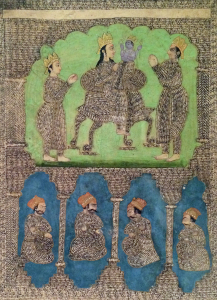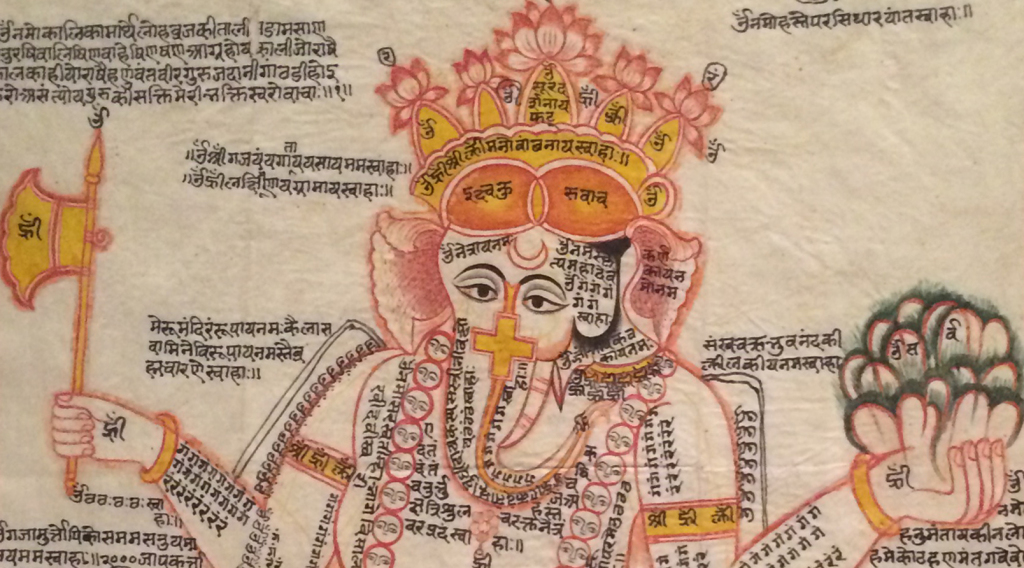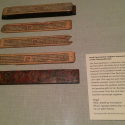A new mini-exhibition at the Philadelphia Museum of Art called The Art of the Book in South Asia presents a number of diverse historical artifacts—also known as books—from India. Here we see again and again instances in which the written word is the subject of and a channel for spiritual reverence.
 The image to the right (18th century), for example, presents the newborn Krishna as the god Vishnu. At first it seems that it’s a simple drawing, but upon closer inspection we see that the shading is actually comprised of endless repetitions of भगवान् (Bhagavān), the Hindu theonym referring to Vishnu/Krishna. In this sense, it labels the information—but it’s so much more than that. As the museum plaque informs, “The repeated writing of the god’s name not only turns the illustration of a holy subject into an icon for devotion, but also serves as an act of devotion in itself.” Thus we can appreciate this page not only as a finished piece—as we see it here—but also as a process, something that was experienced by the person who made it.
The image to the right (18th century), for example, presents the newborn Krishna as the god Vishnu. At first it seems that it’s a simple drawing, but upon closer inspection we see that the shading is actually comprised of endless repetitions of भगवान् (Bhagavān), the Hindu theonym referring to Vishnu/Krishna. In this sense, it labels the information—but it’s so much more than that. As the museum plaque informs, “The repeated writing of the god’s name not only turns the illustration of a holy subject into an icon for devotion, but also serves as an act of devotion in itself.” Thus we can appreciate this page not only as a finished piece—as we see it here—but also as a process, something that was experienced by the person who made it.
The image below of Ganesha (c. 1800–1850) is similar in this way. The page “serves as a diagram that assists devotees in their meditation on the elephant-headed deity. Written hymns that praise him appear in many parts of the composition. These words help readers focus their minds in order to bring the god into their presence.”

In both these examples, we see how both writing and regarding the written word can be forms of meditation. I’ve also written about the concept of mu-shin in Zen calligraphy, which presents us with the same possibility.
What we can take away is that writing is not always meant to convey the content of its words. Sometimes it’s meant to afford an experience—or inspire one. It’s a surrogate. Relatedly, a piece of writing can serve as a document of the experience a person had while creating it.
This is a mental shift: Usually we only consider writing as it is in its complete, finished form—not as a process. I think that’s something the writers among us can appreciate, but also everyone else.
 Follow
Follow

